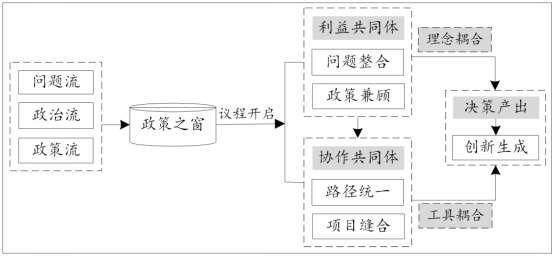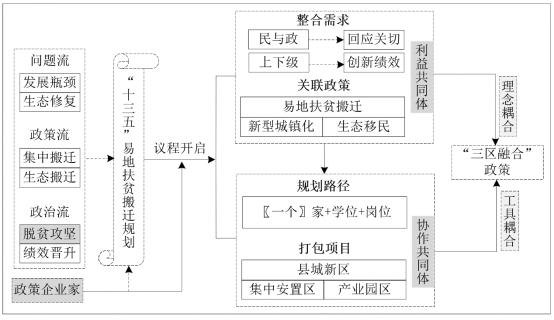Profile of the Authors
Junqing Li: Executive Director of the National Security Research Institute at Minzu University of China, Junwu Scholar at Guangxi University, and Ph.D. supervisor. His primary research focus is governance in frontier ethnic regions.
Yuyan Luo: Master's student at the School of Public Policy and Management, Guangxi University. Her main research interests include grassroots governance.
Liu Zhao Huang: Assistant Professor at the School of Public Policy and Management, Guangxi University, Doctor of Management, and Master's supervisor. His research focuses on grassroots governance and government organizational behavior.
Publication Information
Journal: Public Governance Research
Year: 2022
Volume and Issue: 34(04)
Article Title: Double Coupling: a Perspective for Understanding the Generation of Grass-roots Policy Innovation——a Discussion Based on the Policy-making Process of “Integration of Three Districts” in Long’an County,Guangxi
Citation Format: Li, J., Luo, Y., & Huang, L. (2022). Dual Coupling: Understanding the Mechanism of Grassroots Policy Innovation—A Discussion Based on the 'Three Zones Integration' Policy Formulation Process in Long'an County, Guangxi. Public Governance Research, 34(04), 5-13. DOI:10.13975/j.cnki.gdxz.2022.04.001.
Original Article Link: Dual Coupling: Understanding the Mechanism of Grassroots Policy Innovation
The Opinions of the Central Committee of the Communist Party of China and the State Council on Strengthening the Modernization of Grassroots Governance Systems and Capabilities state that "grassroots governance is the cornerstone of national governance and the foundational project for achieving the modernization of the national governance system and governance capabilities." Grassroots policy innovation, as a critical component of the modernization of grassroots governance systems and capabilities, directly impacts the level of modernization of the national governance system and governance capabilities. Policy agenda-setting, as the first step in grassroots policy innovation, is crucial for initiating the process. Research on policy agenda-setting has become an important topic of interest in academic circles. Additionally, facing the political and social risks associated with policy innovation, grassroots leaders need to balance public demands, top-level design, and government interests during the decision agenda stage. The interplay and interaction between the government and the public, as well as between different levels of government, are significant drivers of policy agenda development. Therefore, analyzing the operational mechanisms of grassroots policy entrepreneurs during the decision agenda stage should be a key focus of academic research. Currently, the application of the multiple streams framework in analyzing local policy innovation agendas often focuses on theoretical application and supplementation, with discussions typically limited to the opening of the policy window and relatively weak on the decision agenda stage. Furthermore, in the context of grassroots policy innovation in China, policy entrepreneurs must concentrate on two key points: the interaction between the public and grassroots governments and between different levels of government. By integrating innovative concepts and designing innovative tools, they can ensure the successful implementation of innovative solutions. Based on this logic, two questions warrant exploration: first, how is the policy agenda for grassroots policy innovation initiated? Second, what is the action logic of grassroots policy entrepreneurs during the decision agenda stage?
Under the guidance of Professor Junqing Li and Professor Liu Zhao Huang, Master's student Yuyan Luo from the School of Public Policy and Management at GXU has applied the multiple streams framework to discuss the grassroots policy innovation environment and how its policy window opens. From the "concept-tool" dimensions and using coupling as the research perspective, this study focuses on the decision agenda of grassroots policy innovation. It explores the organic connections between these dimensions and their key factors, thereby constructing an analytical framework of "Dual Coupling."

Through an in-depth examination of the formulation process of a national poverty-alleviation policy known as the "Three Zones Integration" in a designated poor county, this case study reveals the following: Due to the limited innovation resources at the grassroots level, changes in top-level design within the political stream become crucial for opening policy windows and integrating grassroots policy innovation into the decision-making agenda. Grassroots governments, by addressing public issues to meet both public demands and their own governance needs, while also considering related policies to align with intergovernmental performance improvement requirements, foster a consensus of interests between the government and the public. This ultimately leads to the successful implementation of innovative solutions. First, the implementation of these solutions requires path planning based on the integration of top-level design goals and sustainability characteristics, followed by project integration to achieve resource-efficient use and ensure collaborative efforts among all stakeholders to complete the tool coupling.

Journal Overview
Public Governance Research (formerly known as Journal of Guangdong Administrative College) is a source journal in the CSSCI Extended Edition. It was included in the Chinese Social Sciences Citation Index (CSSCI) Extended Edition by Nanjing University in 2010 and was selected for the Chinese Core Journals Overview by Peking University in 2012. The journal has a composite impact factor of 0.855 as of 2021.

